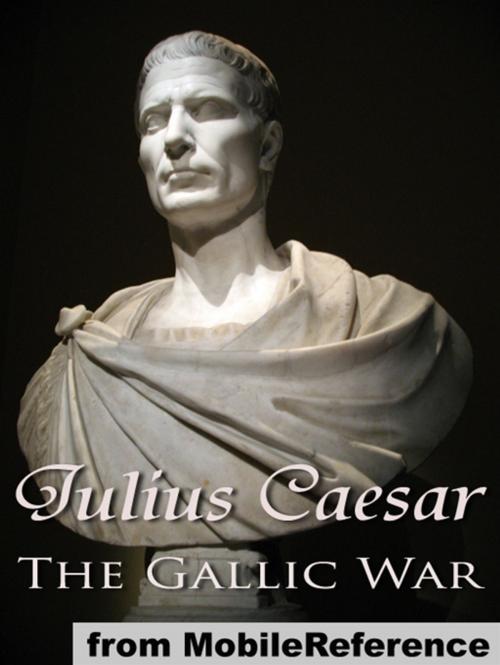The Gallic War (Mobi Classics)
Nonfiction, History, Ancient History, Rome, Fiction & Literature, Classics, Social & Cultural Studies, Political Science| Author: | Julius Caesar, W. A. McDevitte (Translator), W. S Bohn (Translator) | ISBN: | 9781607784227 |
| Publisher: | MobileReference | Publication: | January 1, 2010 |
| Imprint: | MobileReference | Language: | English |
| Author: | Julius Caesar, W. A. McDevitte (Translator), W. S Bohn (Translator) |
| ISBN: | 9781607784227 |
| Publisher: | MobileReference |
| Publication: | January 1, 2010 |
| Imprint: | MobileReference |
| Language: | English |
Translation based on W. A. McDevitte and W. S. Bohn, 1869 The Gallic Wars were a series of military campaigns waged by the Roman proconsul Julius Caesar against several Gallic tribes, lasting from 58 BC to 51 BC. The Romans would also raid Britannia and Germania, but these expeditions never developed into full-scale invasions. The Gallic Wars culminated in the decisive Battle of Alesia in 52 BC, in which a complete Roman victory resulted in the expansion of the Roman Republic over the whole of Gaul. The wars paved the way for Caesar's subsequent becoming the sole ruler of the Roman Republic.Although Caesar portrayed this invasion as being a defensive pre-emptive action, most historians agree that the wars were fought primarily to boost Caesar's political career and to pay off his massive debts. Still, one can not lightly discard the military importance of Gaul for the Romans themselves, who had been attacked several times by native tribes both indigenous to Gaul and further to the north. Conquering Gaul allowed Rome to secure the natural border of the river Rhine.This military campaign is painstakingly described by Julius Caesar himself in his book Commentarii de Bello Gallico, which still is the most important historical source. This book is also a masterwork of political propaganda, as Caesar was keenly interested in manipulating his readers in Rome. Excerpted from Wikipedia, the free encyclopedia.
Translation based on W. A. McDevitte and W. S. Bohn, 1869 The Gallic Wars were a series of military campaigns waged by the Roman proconsul Julius Caesar against several Gallic tribes, lasting from 58 BC to 51 BC. The Romans would also raid Britannia and Germania, but these expeditions never developed into full-scale invasions. The Gallic Wars culminated in the decisive Battle of Alesia in 52 BC, in which a complete Roman victory resulted in the expansion of the Roman Republic over the whole of Gaul. The wars paved the way for Caesar's subsequent becoming the sole ruler of the Roman Republic.Although Caesar portrayed this invasion as being a defensive pre-emptive action, most historians agree that the wars were fought primarily to boost Caesar's political career and to pay off his massive debts. Still, one can not lightly discard the military importance of Gaul for the Romans themselves, who had been attacked several times by native tribes both indigenous to Gaul and further to the north. Conquering Gaul allowed Rome to secure the natural border of the river Rhine.This military campaign is painstakingly described by Julius Caesar himself in his book Commentarii de Bello Gallico, which still is the most important historical source. This book is also a masterwork of political propaganda, as Caesar was keenly interested in manipulating his readers in Rome. Excerpted from Wikipedia, the free encyclopedia.















